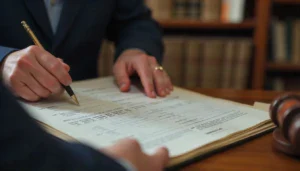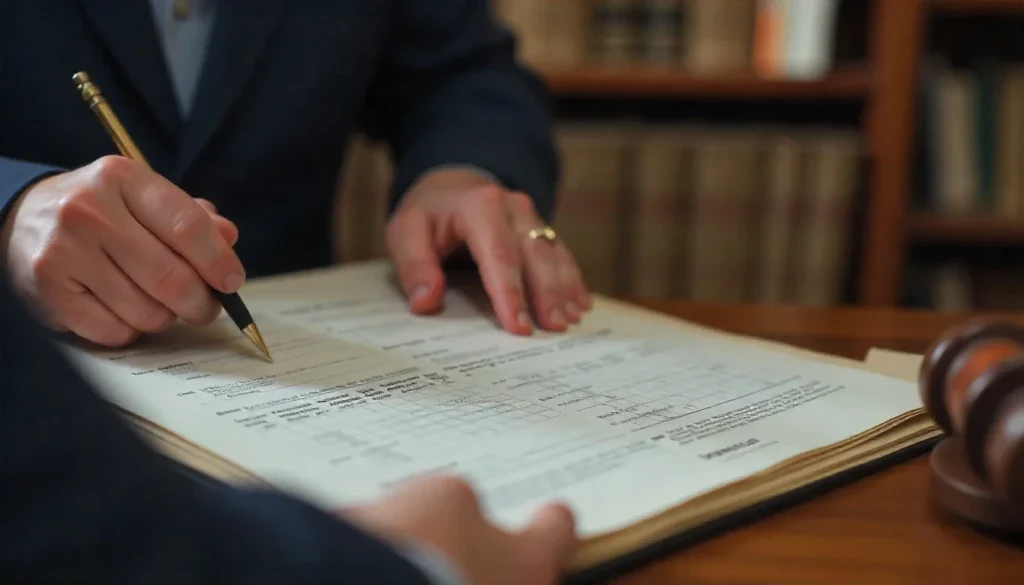Whether you’re buying your first home, selling an investment property, or transferring property ownership between family members, understanding conveyancing in New South Wales (NSW) is essential. The conveyancing process in NSW ensures that property transactions are legally valid, transparent, and smooth from start to finish. But for many, the term “conveyancing” may be unfamiliar or misunderstood.
In this comprehensive guide, we’ll break down everything home buyers and sellers in NSW need to know about conveyancing services—how they work, who provides them, why they’re necessary, and how to choose the right conveyancer or property lawyer.
What is Conveyancing?
Conveyancing refers to the legal process of transferring ownership of property from one person or entity to another. It involves preparing, verifying, and lodging legal documents, managing financial transactions, and ensuring compliance with laws and regulations surrounding property in NSW.
Conveyancing applies to:
-
Residential property sales and purchases
-
Commercial real estate transactions
-
Land transfers
-
Subdivisions
-
Off-the-plan property purchases
-
Strata title transactions
Who Can Perform Conveyancing in NSW?

In NSW, conveyancing services can be provided by either:
-
Licensed Conveyancers – professionals who are trained and licensed to conduct property transactions.
-
Property Lawyers (Solicitors) – qualified legal practitioners who can also handle more complex matters like disputes, deceased estate sales, and legal compliance issues.
When to Choose a Conveyancer vs. a Solicitor
| Scenario | Conveyancer | Property Lawyer |
|---|---|---|
| Standard residential purchase/sale | ✅ | ✅ |
| Dealing with deceased estates | ❌ | ✅ |
| Legal disputes (e.g., breach of contract) | ❌ | ✅ |
| Property transfers involving trusts or SMSFs | ❌ | ✅ |
| Off-the-plan purchases | ✅ | ✅ |
If your transaction is straightforward, a licensed conveyancer may suffice. But if you’re dealing with legal complications, inheritance, or disputes, engaging a solicitor who offers conveyancing services is the better choice.
Key Stages in the Conveyancing Process in NSW
1. Pre-Contract Preparation
For sellers, conveyancing begins before the property is even listed. A Contract of Sale must be prepared in accordance with the NSW Conveyancing Act 1919 and Conveyancing (Sale of Land) Regulation 2022.
The contract must include:
-
Certificate of Title
-
Zoning certificate (Section 10.7)
-
Drainage diagram
-
Property exclusions/inclusions
-
Special conditions (if applicable)
2. Contract Review (for Buyers)
Once a buyer expresses interest in a property, their conveyancer or solicitor reviews the contract to ensure:
-
There are no hidden clauses or penalties
-
All relevant disclosures are made
-
Finance and building inspection conditions are appropriate
3. Exchange of Contracts
This is when both parties sign the contract and legally commit to the transaction. A 5–10% deposit is usually paid by the buyer at this point. After this stage, the cooling-off period begins (typically 5 business days for buyers in NSW, unless waived).
4. Searches and Enquiries
The buyer’s representative conducts property searches to identify any issues with the land, title, easements, or zoning. These may include:
-
Title search
-
Council rates and water rates search
-
Land tax clearance certificate
-
Environmental and planning searches
5. Finance and Settlement Preparation
Buyers secure mortgage finance and sign loan documents. Sellers ensure all mortgage discharges are ready. Conveyancers coordinate with banks to book settlement.
6. Settlement
On settlement day, ownership of the property is officially transferred. The buyer pays the remaining balance, and the transfer is registered with NSW Land Registry Services.
7. Post-Settlement
Final documents are lodged, and the buyer becomes the new registered owner. Council and water authorities are notified of the change in ownership.
Common Conveyancing Issues in NSW (and How to Avoid Them)

1. Undisclosed Easements or Covenants
Easements can affect your ability to renovate or build. A good conveyancer will identify these during the title search.
2. Inadequate Contract Terms
Poorly worded or missing special conditions can expose you to financial risk. Having a solicitor draft or review contracts helps avoid this.
3. Delays in Finance Approval
Without finance, buyers can’t settle on time, potentially losing their deposit. Seek pre-approval early and work closely with your lender.
4. Pest and Building Inspection Failures
Hidden structural issues or pest infestations can cost thousands to fix. Always include a building and pest inspection clause before exchange.
Understanding Costs Involved in Conveyancing
For Buyers:
-
Conveyancing/legal fees: $800–$2,500 depending on complexity
-
Property searches: $300–$500
-
Stamp Duty: Varies based on purchase price (check Revenue NSW)
-
Title registration fees: approx. $160–$170
For Sellers:
-
Conveyancing/legal fees: $800–$2,000
-
Mortgage discharge fees (if applicable): $200–$400
-
Agent commission (if using a real estate agent): Typically 1.5%–2.5%
Why Use a Solicitor for Conveyancing in NSW?
While licensed conveyancers can handle most property transactions, solicitors bring added legal protection and flexibility, especially in:
-
Estate-related sales (e.g., selling a deceased parent’s home)
-
Divorce or separation property settlements
-
Commercial leases and property disputes
-
GST and tax implications on investment property sales
Solicitors can also advise on broader legal implications and offer more comprehensive support.
What to Look for in a Conveyancing Professional
When choosing a conveyancer or property lawyer in NSW, consider:
✅ Experience and Accreditation
Ensure they are licensed in NSW and have experience handling your type of transaction.
✅ Clear Pricing Structure
Look for fixed-fee conveyancing to avoid unexpected charges.
✅ Local Knowledge
Professionals familiar with local council requirements and zoning issues can better protect your interests.
✅ Responsiveness and Communication
Your representative should respond promptly to your queries and explain legal terms in plain English.
FAQs: Conveyancing in NSW
❓ How long does conveyancing take in NSW?
On average, 4–6 weeks from contract exchange to settlement. It may be longer for off-the-plan purchases.
❓ Can I do my own conveyancing?
Technically yes, but it’s high-risk. Errors in paperwork or missed deadlines can lead to financial loss or contract termination.
❓ What if the buyer pulls out after signing?
If a buyer backs out after the cooling-off period, they may forfeit their deposit and face legal action.
❓ Are electronic settlements allowed in NSW?
Yes. NSW uses PEXA (Property Exchange Australia) for secure, digital property settlements.
Final Thoughts: Secure Your Property Transaction with Professional Conveyancing Services
Conveyancing is a vital part of any property transaction. Whether you’re buying your dream home, selling an investment property, or managing a family estate, working with a qualified conveyancer or solicitor ensures legal compliance, financial protection, and peace of mind.
At Lyon Legal Services, we provide clear, fixed-fee conveyancing services tailored to your unique situation. Whether it’s a simple residential sale or a complex estate matter, our NSW-based team is here to guide you every step of the way.
Ready to Get Started?
Call us today or
Contact us online to book a free consultation with our experienced conveyancing lawyers.
Lyon Legal Services – Expert Legal Support for Every Property Journey in NSW


















